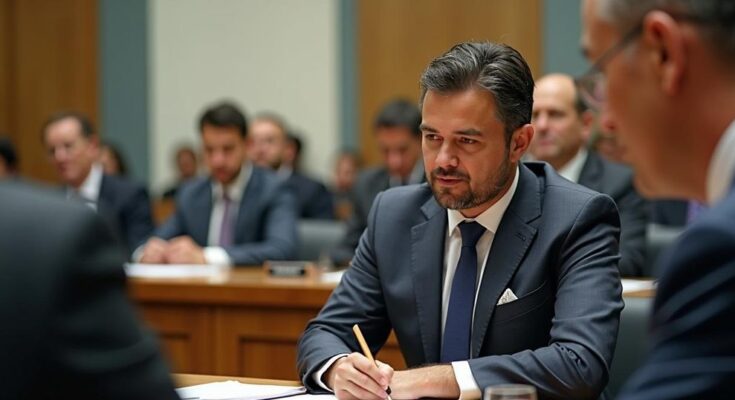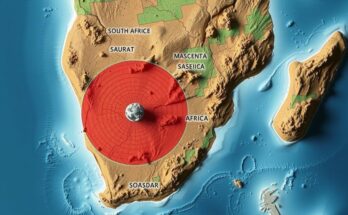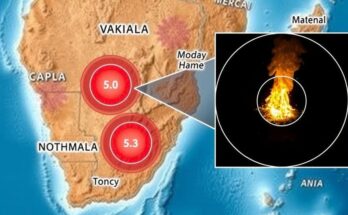Bolivia has joined South Africa’s genocide case against Israel at the ICJ, claiming Israel’s military actions in Gaza violate the Genocide Convention. Bolivia emphasized its moral duty to act against genocide, joining others such as Turkiye and Nicaragua in condemning Israel’s operations, which have reportedly resulted in over 42,000 Palestinian deaths. The broader context highlights increasing international scrutiny of Israel amid allegations of human rights violations.
Bolivia has formally joined South Africa’s action against Israel at the International Court of Justice (ICJ), as confirmed by the court on Tuesday. The South American nation submitted its application to intervene in a case accusing Israel of committing “genocidal acts” in Gaza, in direct violation of the Genocide Convention. In its submission to the ICJ, Bolivia asserted, “Israel’s genocidal war continues, and the Court’s orders remain dead letters to Israel.” The nation emphasized its commitment to condemning genocide as a moral obligation. South Africa initiated this case in late 2023, after Israel’s military operations in Gaza, which commenced in October, drew international scrutiny for not adhering to the principles of the 1948 Genocide Convention. The World Court had previously issued directives in May for Israel to cease its military offensive in Rafah, marking the third appeal from the 15-judge panel aimed at reducing casualties and addressing humanitarian needs amidst the ongoing conflict, which has reportedly left over 42,000 Palestinians dead. Bolivia joins other nations, including Turkiye, Nicaragua, Palestine, Spain, Mexico, Libya, and Colombia, in standing against Israel’s conduct, as the ICJ commenced public hearings on the matter in January. Furthermore, Bolivia had previously severed diplomatic relations with Israel in November, citing the latter’s disproportionate military actions against Gaza. Israel, in response, labeled Bolivia’s stance as a capitulation to terrorism. This development highlights the increasing international concern over Israel’s military actions and their implications under international law. The ruling and decisions of the ICJ could have far-reaching moral and legal repercussions, not only for Israel but also in shaping global responses to accusations of genocide.
The recent action by Bolivia to join South Africa’s case against Israel at the ICJ is part of a broader context surrounding allegations of genocide amidst the ongoing Israeli-Palestinian conflict. Since the escalation of military operations in Gaza, there has been growing international scrutiny of Israel’s actions. The ICJ, operating within the framework of the United Nations, serves as the principal judicial body that adjudicates disputes between states and addresses issues of international law, including genocide. The case initiated by South Africa is founded on the premise that Israel’s military operations constitute violations of the Genocide Convention, to which both countries are signatories. Bolivia’s intervention underscores an increasing solidarity among various nations condemning perceived violations of human rights.
In summary, Bolivia’s official intervention in South Africa’s case against Israel at the ICJ represents a significant geopolitical development, reflecting the growing chorus of nations condemning Israel for alleged genocidal actions in Gaza. With the backing of multiple countries, this case could potentially redefine international legal standards concerning genocide and humanitarian crises, while also influencing global diplomatic dynamics. As the situation continues to evolve, the outcome of the ICJ proceedings will undoubtedly attract significant international attention, with implications for both international law and human rights advocacy.
Original Source: www.middleeastmonitor.com




